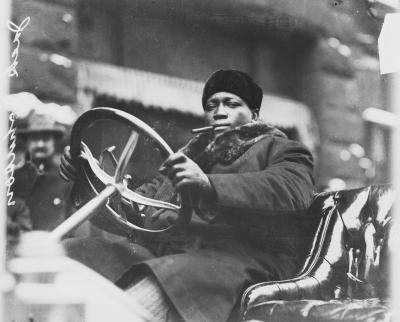The BMRC is a Chicago-based consortium that includes public and private libraries, academic archives and special collections, community archives, art centers, and more. Our mission is to connect all who are interested in learning more about Black history and culture to resources and collections in our member institutions. Our end users range from students working on History Day projects to community members digging into genealogy, artists, and writers, to advanced researchers in the field. Visit our new portal at https://bmrc.lib.uchicago.edu/portal/
In 2019, the BMRC was awarded a grant from the Mellon Foundation that brought in two staff members, including me, the Portal Archivist. I was charged with a complete overhaul and update of the searchable collections database and finding a solution to the perennial issue of keeping the contributed information current. Sustainability was a key focus for the project; I took a holistic approach where technology and building relationships worked together to offer a low barrier to participation, avoided overloading workflows, and affirmed the community and institutional benefits of belonging to the BMRC.
To accomplish these goals, I worked closely and collaboratively with staff at the University of Chicago Library’s Digital Library Development Center (DLDC). I met with staff at BMRC member institutions to talk about how they worked with collections at their archives, who their users were, how they could smoothly insert contributing to the BMRC Archives Portal into their workflows, and most importantly, why they valued being a member, and how BMRC staff could support them. I also did user research interviews with people from external user groups—an undergraduate history major, two former BMRC Fellows, and an art collector and community leader—to shape the functionality and user interface for browsing and discovery. Throughout the year a Portal Working Group, recruited from member organizations, discussed, visioned, and brainstormed every aspect of the site!
When the dust settled, we had succeeded in providing several “ways in” to discovering collections—through browsing facets or selected Curated Topics and searches, through a featured exhibit, or through the serendipitous search provided by a randomized featured facet term. A search bar offers free text search of the collection descriptions, and the search results page renders clickable terms and institutions as well as allowing search refinements from a sidebar menu of facets. Though the appearance of the description varies with the type of data created by each organization, we worked hard on the backend to accommodate a range of practices and formats; again, our goal was to include and support the practices of our heterogeneous membership. When we were close to launch, the Library Communications Director joined us, offering her guidance for promoting awareness. She asked us critical questions that drove our efforts and helped us set up a timeline for various kinds of communications initiatives.
My big takeaway is this: when facing a big project, with multiple constituencies and moving parts, reach out or create connections for help. The BMRC Archives Portal truly was shared work, and a village made it happen. Criss-crossing conversations informed how the site worked, its design, search options, facets, labels, and more. On the backend, these discussions and understanding of our member organizations guided problem-solving and ideas for making the process of uploading and contributing collections information effortless and accommodating, so that the data would not again languish as years went by. Producing and writing web content, finding images from collections, creating promotional material, and populating exhibits and resource pages was a multi-group effort. Because these diverse groups contributed ideas and feedback, I believe the BMRC Archives Portal is better adapted to the needs of our member staff in archives, our end users, and the librarians and archivists who help people discover gems hidden in the vast treasure trove of primary materials about Black experiences right here in our Chicagoland region.
Today's guest blog post is by Laurie Lee Moses, Portal Archivist for the Black Metropolis Research Consortium


